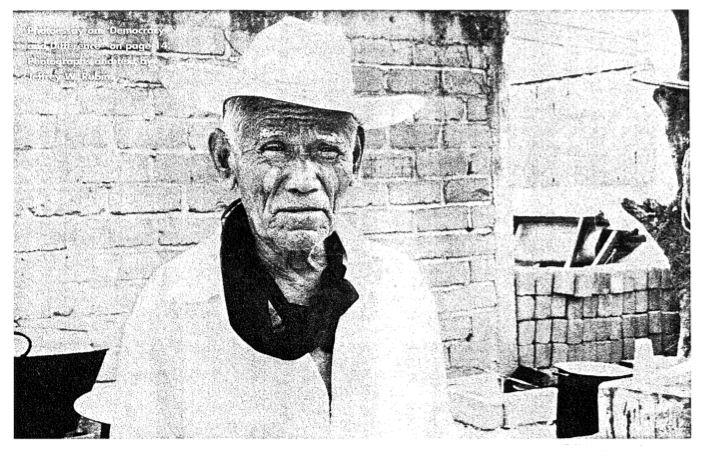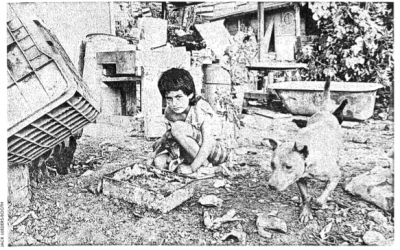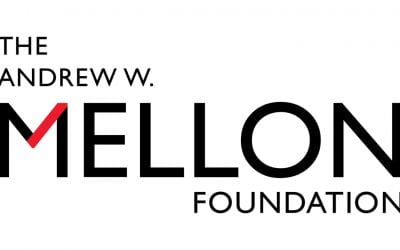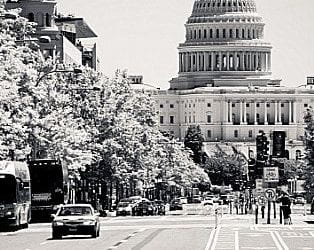On Social Justice

This issue of DRCLAS NEWS focuses on the theme of social justice, a theme inextricably linked with our children and the future of Latin America. So often we who study the lives of children or work with them as, say, teachers or nurses or doctors, speak and write of their needs and problems, but fail to acknowledge their own capacity for, or interest in, doing the very same thing – taking stock of their situation, describing their troubles or worries, not to mention their hopes or aspirations. In 1985, for instance, when I was working in a Rio de Janeiro favela, I found myself quite aware of the poverty everywhere evident, and the consequences of such a state of affairs – the malnutrition and diseases which plagued the lives of the children I was getting to know. I knew how poorly educated they were. I knew how little medical care they got. I knew how inadequately clothed they were, how menial their surroundings, how bleak their prospects – even as, from the heights of a particular favela, they could glimpse the wealth of Copacabana and Ipanema.
Yet, those children also had a view of the statue of Jesus, His arms outstretched, that is a familiar part of Rio de Janeiro’s coastal landscape. That statue, which commands the eyes of tourists for a moment now and then, and which figures in countless photographs of a world-famous city, meant much more to the boys and girls I was getting to know than I had at first realized. That statue, so dramatically situated, came to mean something morally important to those young Brazilians. Jesus in concrete became for them Jesus near at hand, His spirit connecting with their thoughts. Here, for instance, is what a ten-year-old favelado girl had to tell me about some conversations she was having: “Sometimes I just don’t know what to do, because my mother is sick, and so I go and talk to Jesus, and He tells me that it’s a hard life here, but it was hard for Him, too, when He came here, and so He’s on our side, and we should remember that. So, I feel better – stronger. The time will come when the world is better, and Jesus will be back here. He’ll leap out of that statue and straighten everything out – like the nuns say, there will be fairness in the world.”
The voices of those nuns, who run a soup-kitchen of sorts at the foot of the favela, whose makeshift buildings line a steep hill, had become very much a part of that child’s mind, and in fact, had become, in their sum, the voice of Jesus – an unpretentious theological acknowledgment on this girl’s part of the Catholic Church’s claim to speak for Jesus Christ. That word “fairness” meant so very much to this girl – her sense that someday the huge disparity between the rich and the poor, so visible to her as she used her eyes to scan a city that stretched before her, would yield to divine justice, which for her would be a kind of social justice otherwise unobtainable. “God will have to come back to make things better here,” she once told me.
I asked her whether “we,” mere mortals, might not also achieve some of the “fairness” she had mentioned, courtesy of the nuns. She was guarded in her response: “Maybe, we can make it better [the life she and others like her are fated to live], but when Jesus came here, He saw all the trouble there is, and He went back and told the Lord, His God, of all the trouble, and someday He’ll come back and change it so everyone is the same [equal], and there won’t be some there [pointing to Copacabana] with all the money and some here [pointing to her own neighborhood] with no money. That will happen [the Second Coming] but no one knows when.”
So it goes, I was beginning to realize – a child’s thorough awareness of the extreme social divisions that inform a city’s, a nation’s life – and her moral, her spiritual response to that constantly visible disproportion of wealth, of power.
“Visions of fairness,” as expressed by this little girl, are understood in many different ways, not always as intensely spiritual. Her vision–although eminently Catholic–might also be seen as a vision of hope for all, regardless of faith or creed. For it is hope that is written about in this interdiscuplinary issue on social justice in Latin America, whether in the excellent theoretical essays by Merilee Grindle and John Coatsworth on the social agenda and poverty or the more hands-on accounts of Caio Ferraz’ community organizing experiences in the favelas by anthropology doctoral student Richard Pendergast, the moving saga of the School of Public Health’s Ana Cristina Terra de Souza, a middle-class dentist from Rio de Janeiro, whose experiences with community health workers in Northeast Brazil changed her life and theirs forever, and the firsthand account by Mercedes Hinton of how she sought the warmth of the tropics and instead found a vision of democracy in the Americas.
These stories have a broad vision of social justice, ranging from community organizing, health, education, violence prevention to human rights, but they are all stories of human lives, of our future, of our children.
Spring 1998
Dr. Robert Coles is a research psychiatrist for the Harvard University Health Services, and a Professor of Psychiatry and Medical Humanities at the Harvard Medical School. He is also the James Agee Professor of Social Ethics at Harvard University, He has been a visiting professor at Duke University in the History department for many years, is a founding member of the Center for Documentary Studies at Duke University, and is the co-editor of Double Take Magazine published at that Center.
Related Articles
The Social Agenda in Latin America
If the 1980s were the era of economic policy reform in Latin America, the 1990s have become the era of social sector reform. Indeed, a consensus is now forming that delivery of health care…
A Mellon Update
More than 23 Latin American archives and libraries from Mexico to Rio de Janeiro have received grants from the Andrew W. Mellon Foundation to upgrade or preserve their facilities. The…
From Havana to HUD
Kennedy School Assistant Professor Xavier de Souza Briggs, who took a group of 17 graduate public policy students on a one-week study tour of Cuba last year, has now embarked on…




